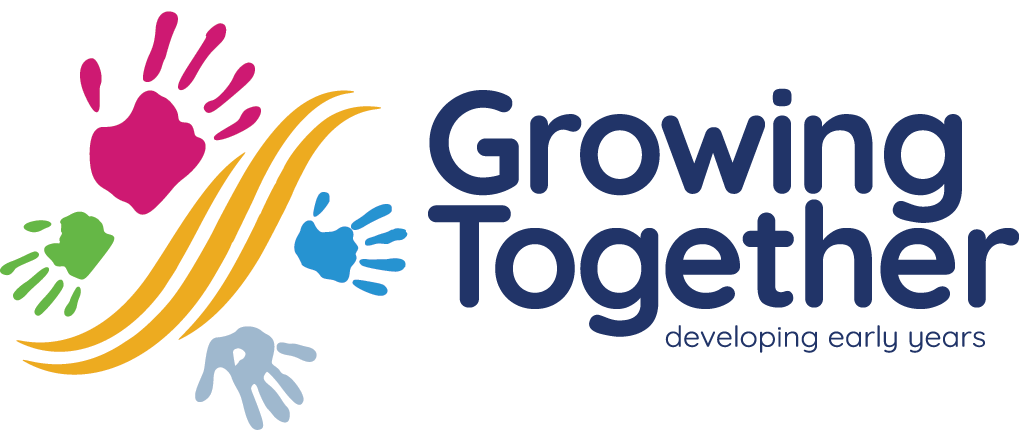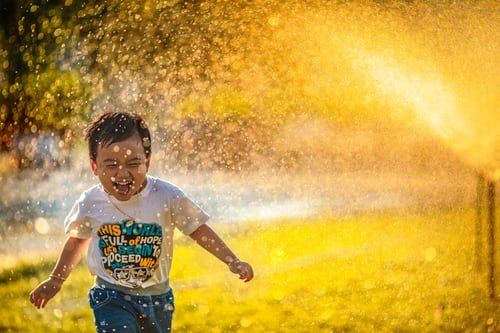Guest Blog: Persona Dolls and Their Impact
One child ran to get a tissue to kindly wipe Ollie's tears and nose, other children gently rubbed his back and gave him a hug, another went to get him a drink so poor Ollie had his first bath that evening too!
Written by Fiona Courtland from Gables House Nursery
(Photo Credit DECSY)
I first came across Persona Dolls in February 2020 as I was browsing through the internet looking for ideas to promote inclusive practice in my early years setting. Persona dolls were founded by a lady named Babette Brown in 2000 who's mission was to promote diversity and challenge discrimination on the grounds of race, gender, class and ability. Referenced from (https://personadolluk).
Intrigued after watching a promotional video, I purchased the training resources and my first Persona doll whom we named Ollie. He arrived during the first lockdown which was actually perfect for us because we had one particular little boy who had very abruptly transitioned from his existing nursery to ours due to a Covid closure. As a result, he was really shell shocked at being moved from a nursery he loved one day, to our nursery the next, by a very fractious and worn out mummy who was working full time for the NHS.
As a team of staff, we had a discussion around intention of use for the doll which we believed might resonate with this child. We named our doll Ollie and gave him a similar identity to child x, a home, a family unit the same. He had similar likes, interests and family circumstances which we thought would easily form a connection to the child we had in mind. On first introduction, I entered the room holding Ollie whist all the children were busy playing and placed myself strategically next to child x. I said nothing, I just waited and after a few minutes proceeded to place my ear up to Ollie's mouth in order to start my imaginary conversation. I responded to Ollie with words of reassurance and my eyes remained fixed on the doll giving him full attention. It took less than two minutes for children's curiosity to be roused to the point where they stopped what they were doing to investigate further.
At first there was a general air of disbelief and suspicion about the credibility of my conversation. However my face remained serious as I continued to give Ollie and only Ollie my undivided attention. Soon the children were following my lips and my actions, fully attentive and engaged in listening to the responses Ollie gave to me through my feedback to them. At that point I knew I could sensitively open up a discussion around feelings attached to transition using Ollie as an example and my prop. As a result I am pleased to say that child x shared all his fears and anxieties relating to his recent move with myself and his new friends during that conversation.
“The impact was instant and quite remarkable.”
The impact was instant and quite remarkable. One child ran to get a tissue to kindly wipe Ollie's tears and nose, other children gently rubbed his back and gave him a hug, another went to get him a drink so poor Ollie had his first bath that evening too! Most importantly, the children showed empathy and kindness towards both Ollie and child x as they developed a new understanding of what it feels like to not know anybody and feel different. Child x showed a sense of relief. He wasn't the only one who was going through a tough time and we could see that he felt better for sharing his thoughts and feelings with us. We were quickly from that point able to both reassure him and also put together next steps in order to continue helping child x to process the sudden changes in his life and the emotions attached to family life being a little strained. He settled so quickly after that. A few months later child x had to get his first pair of glasses. Guess who also happened to need cool and trendy glasses on the very same week? Yes you guessed it..... Ollie!
Since the purchase of Ollie, we went on to buy one more Persona doll named Ekam. Ekam also enabled staff members to open up a whole host of discussions, some relating to equality and diversity, some related to other topics for example protecting our environment. One staff member took Ekam to the beach and collected litter, surrounded herself and the doll with the litter and took a photograph of them with sad faces. The next day a group discussion was opened up as children were asked to think about why she and Ekam might have been sad. The Impact of learning from this discussion set a course for further topics related through planning next steps.
Like all settings we sometimes have challenging behaviour with children who struggle to self regulate emotions. This might include them biting, spitting, being unable to share and take turns etc. The dolls provide a valuable approach to handling all of these issues professionally, sensitively and effectively for the good of each child's unique set of circumstances. They work and they work well and through subtle, indirect teaching we can help children to understand, think critically and make sense of the world around them. The dolls allow children to voice their opinions, give opportunities for the children to know that they are being heard and enable them to understand the importance of allowing different views to be valued.
Every week we find new ways of using these dolls and the children continue to learn so much from us through their use.
Children’s Mental Health Week
Week Beginning 7th February 2022
The 7th February 2022 marks the first day of children’s mental health week. The theme this year for children’s mental health week is growing together. A rather fitting concept and idea, in the early years we spend a lot of time supporting children’s growth and emotional well-being through our relationships, nurturing, and stimulating environments and through supporting parents/carers. Although, we should be focusing on children’s mental health all year round, heading into next week is a great time to focus on how we support children’s emotional growth, as well as their physical and cognitive growth in the first 5 years of their live.
A lot of the research around children’s mental health out there is about children over the age of 5 years old. For example, we know that 1 in 6 children between the ages of 6 and 19 years old suffer with their mental health (Anne Longfield, Children’s Commissioner 2021). This is a shocking difference to 2017 figures of 1 in 9 children suffering with their mental health, this is an issue that deserves it time, reflection, and dedication to support our children. More and more, although it is not discussed as much, I hear practitioners talking about children who are experiencing mental health problems in the early years.
So, this mental health week I am going to encourage you to take the time to reflect on your practise and consider how are we supporting the mental health of children in the early years. Especially, focusing on this year’s theme ‘Growing Together’. When it comes to emotional growth, it doesn’t stop when we become adults it is a lifelong journey, but the children do start that growth and all-important foundations when they are with us in the early years. Foundations that will be built on for many years to come. And a pivotal part of that is learning to identify, talk about and recognise our emotions.
Places2be have developed some lovely resources for children’s mental health week, focusing on growth. These can be found by clicking here. For example, using stories about growth such as the very hungry caterpillar and taking the opportunity to talk to children about their own growth from birth to now. As well as resources from previous years that can be adapted for early years settings.
We also have some resources available on our website that can help you to support children’s mental health, emotional well-being, and personal social and emotional development in the early years. You can find these in our online shop by clicking here.




